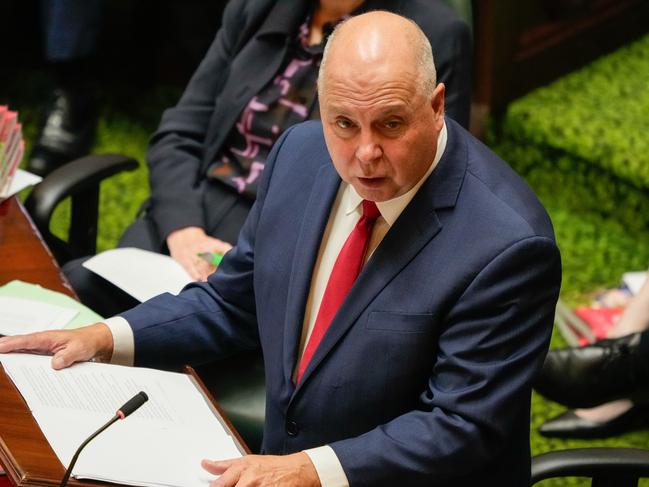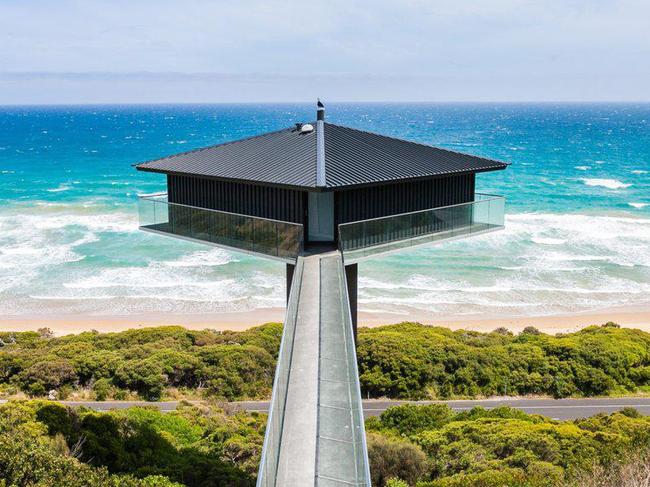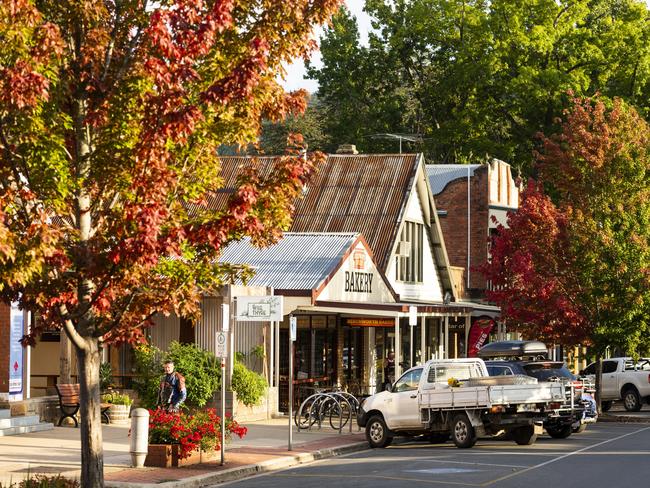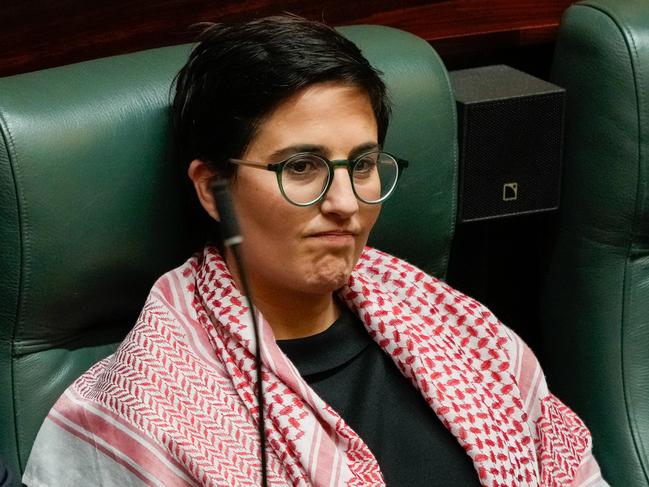Councils to be given power to ban Airbnb rentals under Victoria’s short stay accommodation tax
The Allan government has unveiled more details around its controversial move to slug short-stay accommodation owners with a 7.5 per cent tax — and it’s broken a promise on a key pledge.
Victoria
Don't miss out on the headlines from Victoria. Followed categories will be added to My News.
Mum and dad property investors face a double penalty on their holiday rentals under the Allan government’s controversial Airbnb tax.
Treasurer Tim Pallas on Tuesday unveiled new details about the government’s incoming short-stay accommodation tax, including the looming double hit for property owners.
The government will introduce its Short Stay Levy Bill, which legislates a 7.5 per cent tax on short-stay investments, into parliament this week.
The bill will also give councils the power to apply to government to ban short-stay accommodation in their area altogether.

When former premier Daniel Andrews announced a plan to charge Airbnb operators last year he said the levy would replace council charges.
On Tuesday, however, Mr Pallas said that was no longer the case.
“There will be powers available to local government to make area specific decisions about Airbnb arrangements,” he said.
“They will be able to put in place a number of charges that are consistent with the arrangements.”
Mr Pallas said the decision to hit operators with a double charge was a matter for councils.
“Some of them would be able to and this is once again up to councils,” he said.
The new tax will apply to all bookings made from January 1 in a move the government hopes will encourage investors to return properties to the long-term rental market in a bid to ease the state’s rental crisis.
Other key features of the incoming law include giving local governments the power to regulate short-stay accommodation in their area, including being able to dictate the number of days a property can be listed.
They will also be free to ban short stay accommodation altogether.

Owners corporations will be able to prohibit Airbnb and other short-stay operators from operating at their property with a 70 per cent vote.
The power to ban an Airbnb from operating will not apply to a principal place of residence, meaning those owners can rent out their homes on the platforms when they travel.
“We have made it clear that people’s residences will be excluded,” Mr Pallas said.
“So if your home is effectively sublet, the levy will not apply if you are subletting your home for a short period of time, perhaps to help finance a holiday.”
Mr Pallas denied the Airbnb tax was a “punishment” or a cash grab, saying it was about ensuring Victorians had a roof over their heads.
The new charge is forecast to generate about $60m a year which will go to the government’s social housing agency Homes Victoria.
Double tax backflip slammed
Victorian Tourism Industry Council chief Felicia Mariani slammed the decision to slug property owners twice by not exempting council charges as originally promised.
“Industry is now in a terribly exposed position as local councils have been given a green light to slap an additional tax on top of what is already in place, meaning this could end up being a 15 or 20 per cent tax in reality or more,” she said.
Ms Mariani said the Allan government should look to Western Australia if it was serious about transferring short-stay accommodation to the long-term rental market.
The owners of short-term rental properties in that state can receive $10,000 to convert holiday rentals into long-term leases.

About 200 people have already registered interest in that scheme.
“The Victorian government should be looking at WA for inspiration because they are showing better results in generating long-term rental housing for residents,” Ms Mariani said.
“The Victorian government expects to generate $60m from the short-stay accommodation tax which, even if you rely on a conservative estimate of $400,000 to build a home, will only build up to 150 houses and that is without the maintenance costs to go to existing houses.
“The incentive from WA has already garnered more housing than that and they haven’t built a single thing.”
Opposition Leader John Pesutto said it was a huge impost on the state.
“Jacinta Allan is imposing on Victorians and will slug them at a time when they can least afford it and it will almost certainly produce job losses in the tourism sector,” he warned.
Eacham Curry, senior director of government and corporate affairs at Stayz, said the backflip undermined the original purpose of the levy and risked creating bureaucratic complexity that would drive away tourism dollars.
“Stayz has always advocated for the short-term rental accommodation sector to make a contribution that recognises the impact that it has on the provision of services by state and local governments,” he said.
“Any levy should be set at a sensible level and applied to all short-term accommodation providers.
“Short-term rental accommodation is not the cause or the solution to the current pressures on housing. We would encourage government to avoid additional or increased day or night caps, limits on guest numbers, or day fees. None of these approaches address current concerns around housing and could risk the value STRA brings to local communities and their economies.”
Tax will pass with Greens support
The Victorian Greens on Tuesday said they had secured key reforms to stop property investors from hoarding homes to use as short stay accommodation.
With their support, the proposed new tax is expected to easily pass parliament.

“In the middle of a housing crisis, it’s not right that 48,000 entire homes are on Airbnb across the state — this pushes up property prices, locks out first home buyers and takes homes away from renters,” Greens MP Gabrielle de Vietri said.
“We’ve negotiated significant reforms that will stop investors hoarding homes for profit. The Greens reforms will combine a property investor levy with new powers for councils and owners corporations to ban or limit short stay accommodation in their communities.
“We know that communities across Victoria are sick to death of property investors snapping up homes to cash in on Airbnb while locals struggle to find somewhere to live.
“These reforms are going to make more homes available for renters and first home buyers to live in. We know that pressure works, and we will keep fighting for a rent freeze.”
Tenants Victoria director of community engagement Farah Farouque said short-stay rental platforms had been acting like the “wild west” for years in Victoria.
“It’s good to see these reforms go beyond the financial levy proposed in last year’s Housing Statement,” Ms Farouque said.
“Airbnb has been a factor in reducing much needed supply of long-term rentals in inner-city areas and some holiday locations.
“These new measures won’t solve the ongoing rental crisis, but it represents welcome change to alleviate some of the stressors in the system.”
Tourism, property industry left in dark
The update from the government comes days after the Herald Sun revealed widespread industry concern about a lack of consultation over the proposed new tax.
Victorian tourism operators say they have been left in the dark about the rollout of new tax amid repeated warnings the move could decimate regional tourism.
Ms Mariani said there had been “little to no communication” about how the tax would work.
“Booking platforms have had no advice, there are system changes they are going to have to make but they can’t do that because they don’t know what they are supposed to do.
“The industry is incredibly concerned about their ability to comply.”



